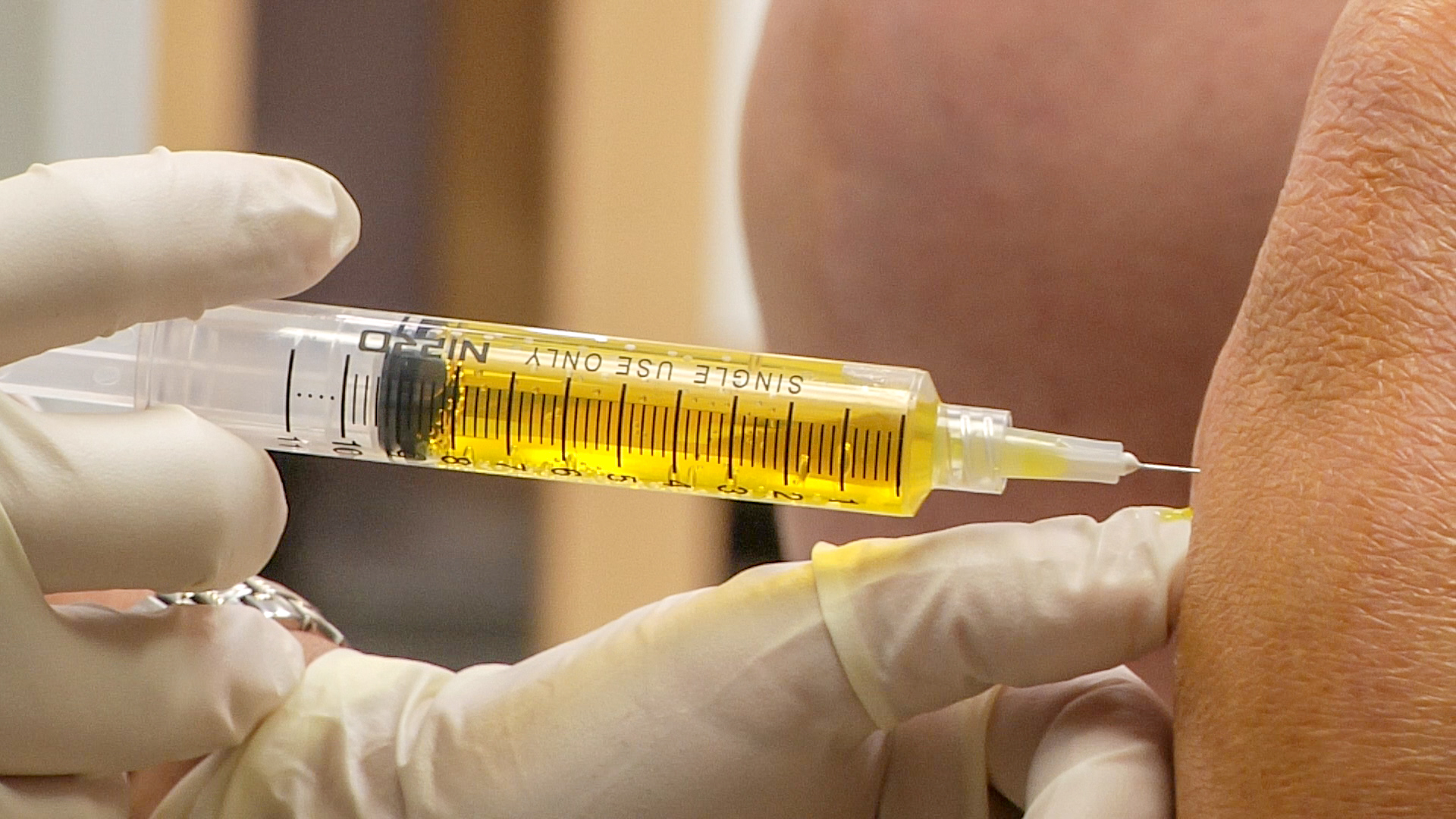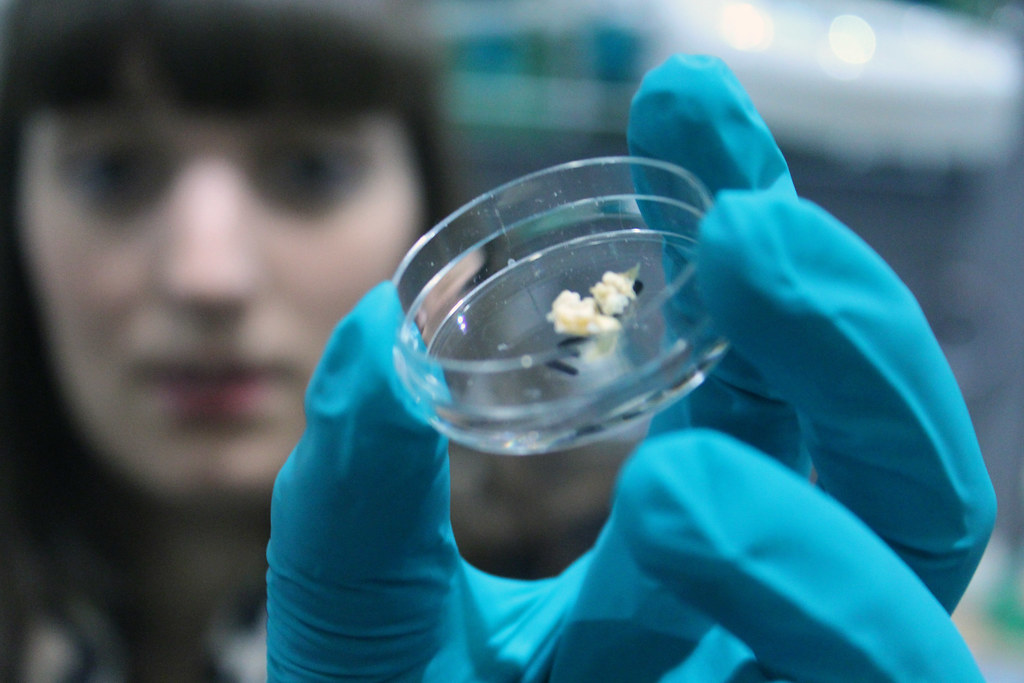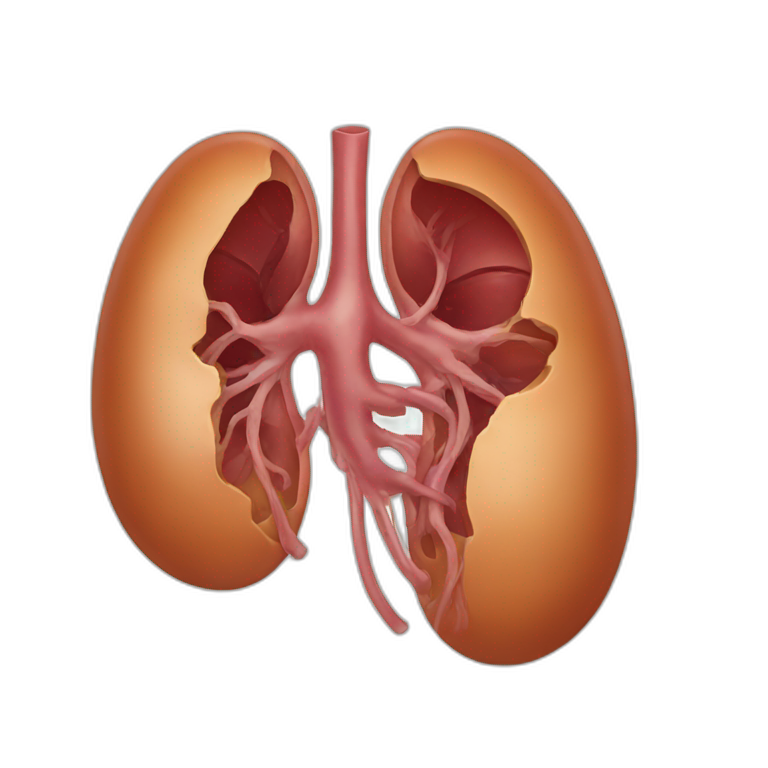Calcijex Injection
- Introduction
- Calcitriol uses
- Composition of Calcijex Injection
- How Calcijex Injection Works
- Calcitriol dosage and Administration
- Storage Instructions for Calcijex Injection
- Calcitriol side effects
- Serious Side Effects and Warning Signs
- Calcitriol interactions
- Calcitriol warnings and calcitriol contraindications
- Important Precautions for Calcijex Use
- Administration to Specific Populations
- Overdosage of Calcijex Injection
- Handling Precautions for Calcijex Injection
- Careful Administration Practices
Introduction
Overview of Calcijex Injection
Calcijex Injection is a medication created to treat conditions related to calcium levels in the body using calcitriol—a man-made version of active vitamin D that helps keep calcium balance in check. It is a common choice in settings for patients needing control over their calcium levels.
Purpose and Medical Significance
Calcijex Injection is mainly used to treat calcium levels and secondary hyperparathyroidism in individuals with chronic kidney disease (CKD). Its specific focus on regulating calcium levels is crucial for both long-term and ongoing treatment.
Key Components and Active Ingredients
Calcitriol is the component in Calcijex Injection. It works with other inactive ingredients to maintain stability and effectiveness while improving its therapeutic benefits.
Calcitriol uses
FDA-Approved Therapeutic Uses
- Managing Hypocalcemia: The Calcijex Injection is successful in increasing calcium levels for individuals facing calcium deficits, especially those undergoing dialysis treatments.
- Dealing with Secondary Hyperparathyroidism involves controlling the activity of glands to minimize issues linked to Chronic Kidney Disease (CKD).

Off-Label Uses
Composition of Calcijex Injection
Active Ingredient: Calcitriol
Calcitriol, a version of vitamin D, plays a direct role in enhancing calcium absorption and maintaining bone health. Its powerful effects deliver quick and efficient outcomes.

Inactive Components and Their Roles
The mixture consists of stabilizing agents and solvents that guarantee the dilution and distribution of the substance boosting the injections stability and durability over time.
Pharmaceutical Formulation Details
Calcijex Injection comes in ampoules that are ready to use and have been carefully produced in strict conditions to meet healthcare standards.
Calcitonin vs calcitriol
Calcitriol is responsible for raising blood calcium levels, while calcitonin works to lower blood calcium levels.
Calcitriol vs cholecalciferol
Calcidol is the metabolite of cholecalciferol found in the bloodstream; meanwhile, calcitriol functions as a hormone that enhances calcium absorption in the intestines and inhibits hormone release.
Calcitriol vs vitamin D
Calcitriol or 1.,25 Dihydroxyvitamin D is the form of vitamin D that acts as a hormone in maintaining health by controlling calcium and phosphorus levels in the body by impacting how these minerals are absorbed in the intestines and stored in the bones and kidneys.
Cinacalcet vs calcitriol
The use of cinacalcet decreased levels while showing no significant impact on calcium and phosphorus levels.
Hectorol vs calcitriol
Calcitriol functions in the intestine to enhance absorption levels, whereas Doxecalciferol stays dormant until it reaches the liver and undergoes conversion into vitamin D.
Sensipar vs calcitriol
Calcitriol (sold under the brand name Rocaltrol) is available, in form and as a liquid for consumption; whereas Cinacalcet (marketed as Sensipar) is used to reduce elevated levels of parathyroid hormone in individuals with hyperactive parathyroid glands due to various medical issues, like parathyroid cancer.
How Calcijex Injection Works
Calcitriol mechanism of action
Calcitriol attaches to vitamin receptors in the body and starts a series of processes that enhance the absorption of calcium in the intestines and support the formation of bone minerals.

Role of Calcitriol in Calcium Metabolism
Ensuring that the body maintains levels for skeletal functions involves improving the transport of calcium from the intestines to the bloodstream with the help of calcitriol.
Parathyroid hormone and calcitriol
Calcijex helps reduce the overproduction of hormone (PTH), which in turn stops bone breakdown and its related issues.
Calcitriol dosage and Administration
Calcitriol dosage for adults
Administer the Calcijex Injection while under the care of a professional. It is essential to adjust dosages according to the severity of the condition with amounts ranging between 0. 1 And 1 microgram each day
Calcitriol dose for vitamin d deficiency
The typical starting dose of Rocaltrol for adults and children aged three and above is 0.25 mcg/day.
Calcitriol max dose
Max: 30 g daily.
Administration Techniques
Make sure to maintain cleanliness when preparing and administering injections for outcomes. Factors like patient requirements may necessitate dilution for dosage.
Calcitriol dialysis
Calcitriol, a medication for vitamin D, is prescribed to address hyperparathyroidism and offer nutritional support to individuals undergoing dialysis treatments.

Adjustments for Specific Conditions and Patient Populations
Monitor calcium levels regularly. Adjust doses as needed for people with changing blood calcium levels or existing health conditions.
Storage Instructions for Calcijex Injection
Recommended Storage Conditions
Please keep the item in a place between 2 and 5 degrees Celsius and away from sunlight to ensure its effectiveness is preserved; avoid freezing it as it could impact its efficacy.
Shelf-Life and Stability Considerations
Remember to check the expiration dates on the packaging and store the product correctly to maintain its effectiveness throughout its time on the shelf.
Safe Disposal Practices
Make sure to dispose of any expired injections according to the guidelines for medical waste disposal to prevent any environmental contamination.
Calcitriol side effects
Gastrointestinal Side Effects
Neurological Side Effects
Other Frequently Observed Reactions
Patients may occasionally experience mild itching or injection site reactions.
Serious Side Effects and Warning Signs
Symptoms of Hypercalcemia
- Fatigue
- Excessive thirst
- Irregular heartbeat
Allergic Reactions and Anaphylaxis Risks
Rare but Severe Adverse Effects
Occasionally, Calcijex can result in issues like nephrocalcinosis or vascular calcification in people predisposed to them.

Calcitriol interactions
Medications That May Alter Effectiveness
Potential Interactions with Calcium Supplements and Antacids
Using both medications at the time may result in increased levels of calcium in the body therefore its recommended to keep a watch on this situation.
Calcitriol warnings and calcitriol contraindications
Medical Conditions Requiring Caution
Administer Calcijex Injection with care in patients who have existing conditions such as hypercalcemia or vitamin D toxicity, as these conditions increase the likelihood of side effects and require monitoring.

Absolute Contraindications for Calcijex Injection
This injection should not be given to patients who have a sensitivity to calcitriol or any of its ingredients and also should be avoided in people with signs of high levels of calcium in their blood as it could cause serious and potentially life-threatening issues.
Situations Requiring Close Monitoring
- Patients with renal dysfunction or hepatic impairment.
- Individuals on concurrent medications that affect calcium metabolism.
- Those with a history of kidney stones or metastatic calcification.
Important Precautions for Calcijex Use
Monitoring Blood Calcium and Phosphate Levels
Regular monitoring of serum calcium and phosphate levels is crucial to prevent issues such as calcium levels or abnormal calcification in areas of the body, ensuring that medication doses are appropriate and patient well-being is safeguarded.
Foods to avoid while taking calcitriol
To enhance the benefits of the Calcijex Injection treatment regimen for patients and optimize its effectiveness, it is recommended that they follow a customized plan that restricts the intake of calcium and phosphate. Individuals should refrain from consuming high-calcium supplements unless under guidance from healthcare professionals.
Importance of Adherence to Prescribed Dosage
Following the recommended dosage exactly is crucial for effectiveness. Avoiding side effects as using too much or too little can impact the success of treatment and potentially result in significant health problems.
Calcitriol nursing considerations
Calcitriol can be found in breast milk. Avoid using it during breastfeeding.

Administration to Specific Populations
Administration to Elderly Patients
Adjustments Based on Age-Related Physiological Changes
Elderly individuals frequently encounter kidney function and may require amounts of Calcijex Injections to avoid potential toxicity risks; it is crucial to make regular dose adjustments according to laboratory findings.
Common Complications in Elderly Populations
Elderly individuals are at risk of issues such as calcifications or kidney problems, and careful monitoring can help reduce these dangers.
Administration to Pregnant Women and Nursing Mothers
Risks and Benefits During Pregnancy
When considering the administration of Calcijex Injection in women, it is important to weigh the advantages for the mother against any risks to the unborn baby's health, as elevated calcium levels may have negative effects on fetal growth and well-being.
Impact on Breastfeeding and Infant Safety
Calcitriol can be found in breast milk. Although it may not always be harmful, to nursing infants it is recommended to exercise caution to avoid hypercalcemia in them.
Administration to Children
Age-Appropriate Dosing Guidelines
When prescribing medication, for children, it's important to calculate the dosage by considering their body weight and the seriousness of their condition, making changes as they grow or when lab results change over time.
Considerations for Pediatric Patients
Make sure to keep an eye on children for any signs of hypercalcemia or issues with growth or bone abnormalities while they are receiving treatment with Calcijex Injection.
Overdosage of Calcijex Injection
Symptoms of Calcitriol Overdose
Overdose symptoms include profound nausea, vomiting, weakness, excessive thirst, and confusion. In severe cases, hypercalcemia may lead to arrhythmias or kidney damage.
Immediate Actions to Take in Case of Overdose
- Discontinue Calcijex Injection immediately.
- Initiate symptomatic treatment, including rehydration and administration of diuretics to lower calcium levels.
- In extreme cases, consider dialysis to remove excess calcitriol.
Long-Term Complications and Treatment Options
Recurrent excessive intake can lead to nephrocalcinosis or vascular calcifications and may cause harm to the kidneys; timely intervention is crucial to avoid consequences.

Handling Precautions for Calcijex Injection
Safe Handling Guidelines for Healthcare Providers
Healthcare professionals must follow a technique when preparing and administering treatments, and wearing gloves helps avoid unintended exposure to hazards.
Recommendations for Patient Self-Administration
Patients who have been taught how to self-administer medication should be careful to store and handle syringes correctly to avoid any risk of contamination or misuse.
Emergency Measures in Case of Accidental Exposure
If Calcijex Injection accidentally touches your skin or eyes, rinse with water and seek help if you experience any irritation or adverse reactions.
Careful Administration Practices
Tailored Treatment Plans for Patients with Comorbidities
People who have both diabetes and other health issues, such as heart disease or liver problems, need personalized treatment plans to reduce the chances of complications occurring.
Managing Concurrent Therapies
Ensure that Calcijex is taken in consultation with healthcare providers to accurately adjust doses due to interactions with medications, like calcium channel blockers or anticoagulants.
Steps to Ensure Effective and Safe Administration
Ensuring patients are well informed about the intended benefits and potential risks associated with Calcijex Injection is crucial during the education process. Regular check-ins to assess how treatment is going and make any needed changes as we go along. Please report any reactions away so that medical help can be provided promptly.
Calcijex Injection FAQ
- When is calcitriol secreted?
- Calcitriol when to give?
- Calcitriol when to use?
- Calcitriol when to take?
- Calcitriol what vitamin?
- Calcitriol what to monitor?
- Calcitriol what type of drug?
- What calcitriol does?
- What calcitriol used for?
- Calcitriol how does it work?
- Calcitriol how to take?
- How calcitriol helps in calcium absorption?
- How calcitriol works?
- Can calcitriol cause constipation?
- Can calcitriol be taken at night?
- Can calcitriol cause high blood pressure?
- Can calcitriol cause diarrhea?
- Can calcitriol cause hypercalcemia?
- Can calcitriol be crushed?
- What are calcitriol used for?
- What are calcitriol tablets?
- Are calcitriol and calcitonin the same thing?
- Are calcitriol and vitamin d the same?
- Will calcitriol increase calcium?
- Will calcitriol increase vitamin d levels?
- Why is calcitriol important?
- Why does calcitriol inhibit pth?
- Why take calcitriol?
- Why is calcitriol used in ckd?
- Who should take calcitriol?
- Which gland produces calcitriol?
- Where is calcitriol synthesized?
When is calcitriol secreted?
When the levels of calcium and phosphate in the blood are low, calcitriol is released as a response.
Calcitriol when to give?
It is typically recommended to take it every other day in the morning, with or without food.
Calcitriol when to use?
Calcitriol is prescribed for individuals with kidney issues who are unable to produce sufficient amounts of the active Vitamin D form.
Calcitriol when to take?
Its typically recommended to take it every other day in the morning whether with or without food.
Calcitriol what vitamin?
Vit D
Calcitriol what to monitor?
Your physician might examine the levels of calcium and phosphate in your blood and make changes to your prescription if you experience any reactions.
Calcitriol what type of drug?
Calcitriol belongs to a group of drugs known as vitamin D analogs.
What calcitriol does?
Calcitriol is a medication that addresses diminished calcium levels resulting from kidney disease.
What calcitriol used for?
Calcitriol is a medicine used to address calcium levels resulting from kidney disease.
Calcitriol how does it work?
It addresses low calcium levels in individuals with kidney problems. It can also enhance the calcium levels in individuals with disorders of the parathyroid gland.
Calcitriol how to take?
Remember to ingest this medication once a day, either with or without a meal, as instructed by your physician.
How calcitriol helps in calcium absorption?
Calcitriol increases calcium levels in the blood by promoting calcium absorption in the intestines.
How calcitriol works?
Calcitriol raises the amount of calcium in the bloodstream by promoting calcium absorption in the intestines and enhancing calcium reabsorption by the kidneys while potentially boosting the release of calcium from reserves.
Can calcitriol cause constipation?
Yes
Can calcitriol be taken at night?
Perhaps consider taking calcitriol before bed if you are also using medications during the day.
Can calcitriol cause high blood pressure?
The level of serum calcitriol is inversely related to blood pressure levels.
Can calcitriol cause diarrhea?
Yes
Can calcitriol cause hypercalcemia?
An elevation in calcitriol levels occurs as a result of the activity and quantity of macrophages possessing 1 alpha hydroxylase function, which consequently results in hypercalcemia.
Can calcitriol be crushed?
Please do not open the capsule of this medication; avoid crushing or chewing it.
What are calcitriol used for?
Calcitriol is prescribed for managing and preventing decreased calcium levels and bone issues in individuals with kidney or parathyroid gland conditions.
What are calcitriol tablets?
Calcitriol is used as a treatment to reduce low calcium levels resulting from kidney disease.
Are calcitriol and calcitonin the same thing?
Calcitonin and calcitriol are hormones that regulate calcium levels in the body but have distinct functions. Calcitriol raises blood calcium levels, while calcitonin lowers them.
Are calcitriol and vitamin d the same?
Calcitriol is a biologically active version of vitamin D.
Will calcitriol increase calcium?
Calcitriol boosts calcium (vitamin D) levels, increasing its presence in your system.
Will calcitriol increase vitamin d levels?
Calcitriol helps boost calcium (vitamin D ) levels in your body.
Why is calcitriol important?
Calcitriol plays a role in maintaining calcium levels in the body and is used to manage bone-related issues and conditions affecting the parathyroid glands.
Why does calcitriol inhibit pth?
Calcitriol prevents the release of hormone (PTH) by connecting with the Vitamin D Receptor (VD R), which stops the activation of the PTH gene.
Why take calcitriol?
Calcitriol is a drug that addresses decreased calcium levels resulting from kidney disease.
Why is calcitriol used in ckd?
Calcitriol is prescribed for managing kidney disease (CKDa because it aids in regulating calcium and phosphorus levels in the body. It is practical in addressing bone issues and maintaining calcium levels.
Who should take calcitriol?
Calcitriol is prescribed for managing and preventing calcium levels and bone issues in individuals with kidney or parathyroid gland conditions.
Which gland produces calcitriol?
Kidney
Where is calcitriol synthesized?
Kidney and other tissues







